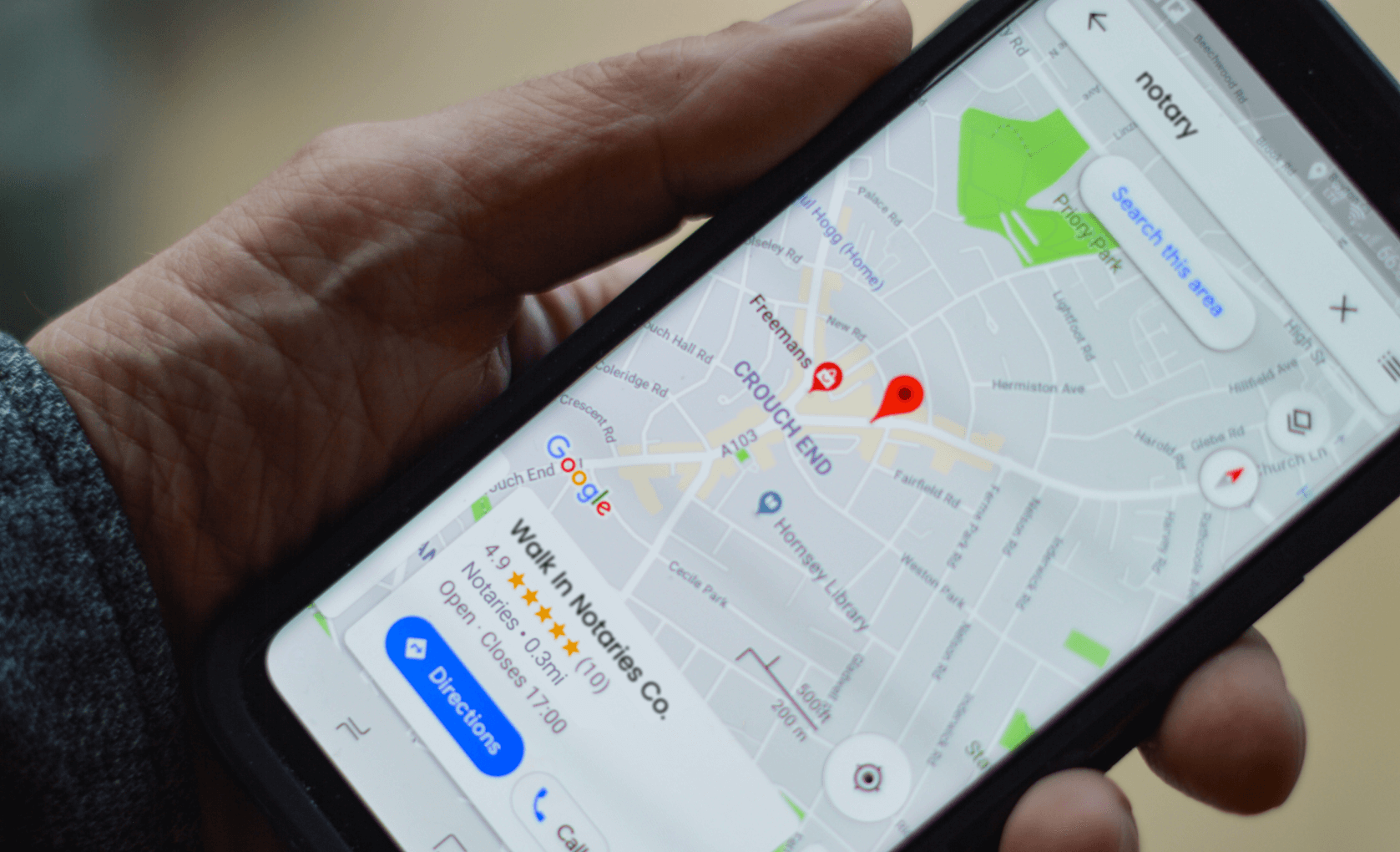How to Get a Signature Notarized

You have probably notarized documents in the past. Is notarization still an important part of the legal and business landscape? The simple answer is yes. Notarization is the first line of defense against fraud and identity theft.
Notarization of signature prevents risk and ensures you’re operating on a basis of trust. When you need to get a paper notarized, an online notary is a viable option that’s fast, safe, and convenient.
Why Notarization of Signature Matters
Notaries have existed since the days of ancient Rome. Governments, legal officers, and courtrooms rely on the authenticity of signatures on documents to function smoothly. These bodies, however, do not have the ability to prove that every signature on every document is authentic. For this reason, early legal systems developed a way to let independent parties notarize signatures.
Before you can get a paper notarized, a notary must prove:
- The signature is authentic.
- A document is genuine.
- The person signing did so willingly.
- The public and courts can place their full trust in the document.
How To Properly Notarize Signatures

When you get a signature notarized, you must follow the proper steps to ensure its validity.
Don’t sign the document. Never sign a notarized document until you’re in the presence of a notary. The notary must affirm that they personally witnessed you signing the document.
Bring proper identification. The notary must see a driver’s license, passport, or another official document that proves your identity.
Verify your identity and sign. The notary will verify your identity and ask you to sign the document.
Pay the fee. Notaries must spend their own money to buy supplies and pay for licensing. In most cases, you will pay a small fee to get a paper notarized. It’s typically less than $20.
What a Notary Needs To See
Notaries are not required to notarize a document if they think there’s something wrong. A notary must be certain that all parties are of sound mind, understand what they’re signing, and are signing willingly. They must also verify the identities of everyone signing. If anything seems off, the notary can refuse to notarize the signature.
Notaries Don’t Offer Legal Advice
Notaries are not lawyers, and they don’t provide legal advice. A notary can’t tell you if a document is legal or valid. A notary can’t tell you if you’re entering into a bad deal. They can only verify your identity and your signature.
Where To Get a Signature Notarized
Most notaries don’t have full-time notarization businesses. They typically have other jobs and work as notaries on call. That said, how do you find one near you?
Online Notary Platforms
Almost all states now permit remote online notarization (RON). This was already in the works, and the COVID-19 lockdowns led to the widespread adoption of RON. Some states still require in-person notarizations for certain transactions, but online notarization has become more widely accepted. These online platforms use state-of-the-art encryption to ensure your privacy.
If you’re wondering where to get something notarized, consider using an online platform. You can notarize signatures from the convenience of your home or office, and the notarized document is valid anywhere.
Instructions for Using an Online Signature Notarization
To get a signature notarized online, register for a free account at an online platform like OneNotary. Once you do, follow these instructions.
- Complete the free registration.
- Schedule a time for your notarization.
- A notary will send you an invitation email.
- Open the email attachment to start your session.
- Upload your documents.
- Complete the identification section.
- Virtually sign your documents.
- Wait for the notary to attach a seal.
- Download and print your documents.
Banks
Banks often have employees who are notaries. In most cases, you can walk in and ask for notary services. It’s risky, however, because the notary might not be working the day you walk in. Banks also keep limited hours, and those hours might not mesh with your schedule.
Local Government Office
Some government offices have notaries on staff. It’s unlikely you can walk in, however, and you will probably need an appointment. An online search of your local government offices is a good place to start.
Courthouse
You can often find a notary at a courthouse. You can sometimes find notaries in the public records office or cashier’s office. To make sure your local courthouse has a notary, call ahead. Be sure you know when the notary is available.
Mail and Shipping Store
Mail service stores often have at least one notary on staff. You can take a chance by walking in and asking. If the notary is available, this can be a fast and easy option.
Mobile Notary Public
Some notaries are mobile, which means they travel to appointments. This is very convenient. To find these notaries, do an online search for mobile notaries in your area.
Other Businesses and Organizations
Other businesses typically have at least one person on staff who is a notary. They include:
- Real estate offices.
- Tax preparers.
- Accounting firms.
- Office supply stores.
- Check cashing stores.
Notarization of Signature Is the Basis of Trust
Proper notarization is key to many daily transactions. Life’s events, including death, illness, caring for our loved ones, buying homes, entering into business deals, are all events that rely on valid signatures. As the National Notary Association put it, “The notarial act is the foundation of trust, and the notaries who perform [these acts] are society’s guarantors of integrity and authenticity.”
Notarized Signatures Make the Difference
There are specific legal documents that require notarization. The following is a small sample of documents that aren’t valid unless they’re properly notarized.
Will
Wills are powerful documents. They speak for a person who has died and can no longer speak for themselves. A will explains how and where to divide a person’s estate and distribute their possessions.
A court will only do what the will says if the document and signatures are genuine. That’s why notarization is crucial to a will. Without proper notarization, the courts can contest or ignore a will.
Real Estate Purchase
A real estate purchase requires the assurance that all parties involved are acting of their own free will. For the sale or transfer of a home to be valid, the signatures can’t be fraudulent. Real estate transactions are a frequent target of fraudulent activities, and notarization is the best defense against this fraud.
Affidavit
Affidavits are written statements that have the same legal weight as verbal testimony in court. Affidavits are one of the most common documents that get notarized. We use affidavits in court hearings, arbitration hearings, employment transactions, and a wide range of situations. An affidavit is only valid if it has a valid signature and is properly notarized.
Business Documents
Many business documents require notarization. These include contracts, business registrations, copyright registrations, permits, employment contracts, and many more.
Notarization is important for entrepreneurs and all business owners. It ensures you’re using documents and contracts that are legally valid and enforceable.
Power of Attorney
A power of attorney or POA is one of the most powerful legal documents a person can sign. When you assign POA to someone, it means you allow them to make decisions regarding your finances, living situation, and many other matters if you become ill or incapacitated. With a POA, someone can sign checks, conduct business, and sign contracts on your behalf.
There is also a limited POA. For instance, you might sign a limited POA allowing your real estate agent to sign real estate documents for you. If you hire an accountant, you might sign a POA allowing them to make financial transactions for you.
It’s very important to ensure a POA has an authentic signature. Because a POA concerns a person’s most serious financial and personal matters, they must always be properly notarized.
Deed of Trust
Deeds of trust determine who owns a home. They are particularly important when you’re trying to get a second mortgage on a home. The bank can’t issue a mortgage unless all the parties who own the house are in agreement.
Medical Power of Attorney
A medical POA is another powerful document that requires proper notarization. Some people use medical POAs when minors receive medical care. Hospitals and clinics may require a notarized medical authorization from the child’s parents. The document gives the health care staff permission to provide medical treatments.
A medical POA also allows caregivers for elderly people to decide what kind of medical treatment their loved one will receive.
Release of Medical Records
The Health Insurance Portability and Accountability Act of 1996 (HIPAA) is a federal law that requires hospitals and clinics to protect patients’ health records. Under HIPAA, a medical facility can’t disclose your personal medical information without your consent or knowledge. A signed release of medical records must be authentic and must be properly notarized.
Long-Term Elder Care Planning
In an article in the Caregivers Voice, notary Michael Lewis points out that notarization is a key part of planning for long-term care. You need several documents that concern elderly care, including powers of attorney and advance healthcare directives, which are also known as living wills. These documents all require notarization, which may become impossible if your loved one develops dementia.
“Wherever you are in your caregiving journey, it’s the perfect time to start attending to these important documents. Don’t put it off by thinking that there will be time later or assuming it is already too late. Start planning as soon as possible so your loved one will be able to have the care that makes them most comfortable.”
Who Can Be a Notary?
According to the National Notary Association, there are over 4 million registered notaries in the US.
A notary is a public official. In most states, a notary must pass a background check, take a licensing exam, pay for a license and receive a state notary commission.
In a handful of states, including Iowa and Louisiana, lawyers automatically have the power to act as notaries. In others, they must pass the notary exam and pay a licensing fee like any other notary.
Protect Yourself with Notarization
Notarization is the first line of defense against fraud. If your documents are important, it’s crucial to get them properly notarized. You can find a notary at a local store or use the fast, easy online option. Your notarized signature is your assurance that a document is authentic and legally binding.




